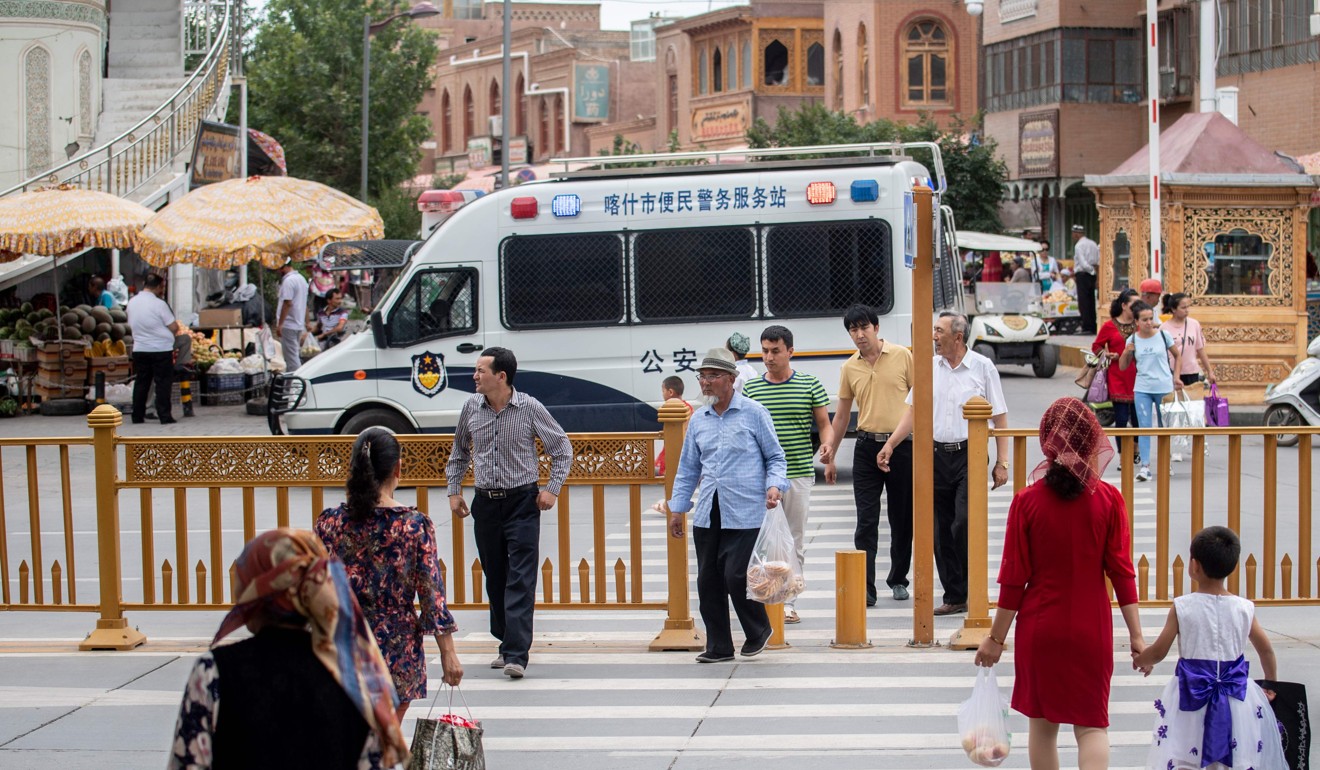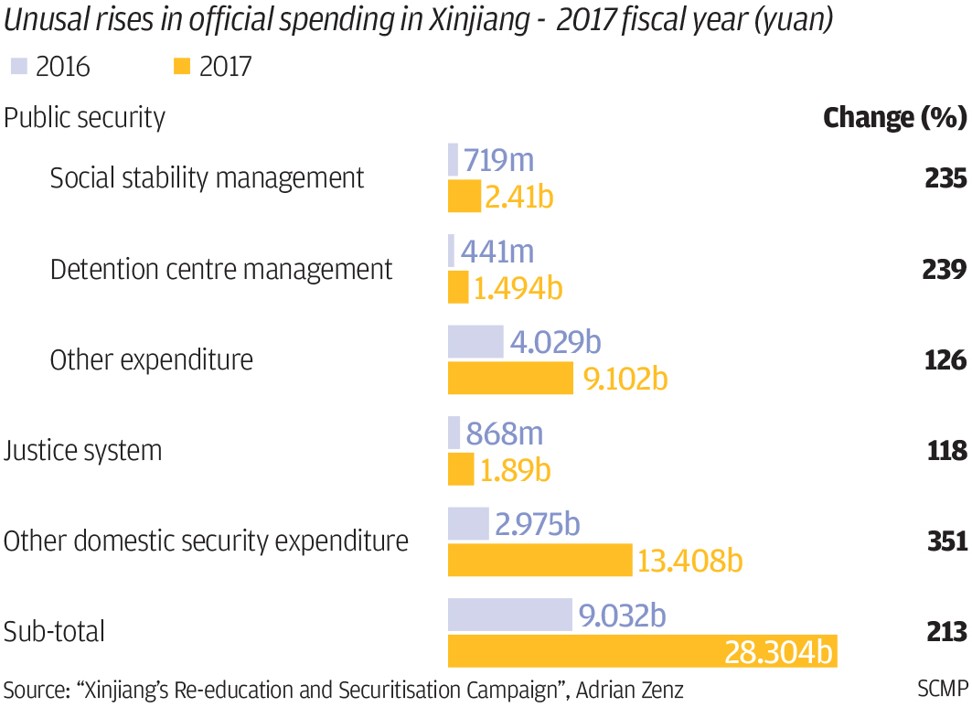
China spending spike on Xinjiang ‘re-education camps’ revealed amid UN scrutiny of rights record
- Outlays by some public security and justice departments at least double, study finds
An extra 20 billion yuan (US$2.89 billion) was spent on building security facilities in China’s far western region of Xinjiang last year as authorities implemented a controversial re-education camp programme, a new study has estimated.
The programme was also a focus of a periodic UN human rights review in Geneva on Tuesday, with many Western countries urging China to halt the internments targeting citizens of ethnic minorities and allow independent observers unhindered access to inspect the camps.
Watch: China grilled over Uygur mass detention during UN review
In August, another UN panel said camps in the region were holding up to a million Uygurs and other Muslims, subjecting them to enforced political indoctrination.
But Chinese authorities described the camps as “vocational training centres” used in the country’s religious de-radicalisation campaign. Chinese officials also denied that any citizens were detained arbitrarily and that the UN’s figure was accurate.
Australian foreign minister Marise Payne will raise concerns with China over Xinjiang internment camps during rare visit
There is still no word from Beijing nor Urumqi on the scale of the re-education camp programme.
In a study released this week, Adrian Zenz, a specialist on the region from the European School of Culture and Theology in Germany, examined outlays by national and local governments, including their finance departments, and found an unusual rise in spending by various levels of administration in Xinjiang for the 2017 financial year.
In particular, five categories of expenditure by police, justice departments and other domestic security agencies grew to between double and nearly quadruple from 2016 – in contrast to the budget for vocational education which shrank by 7 per cent.
“Just like [China’s] former re-education through labour system, Xinjiang’s re-education campaign seems to be managed by [justice bureaus], administered by the public security agencies, and funded largely out of the budgets of these same authorities,” the report said.
Xinjiang camps: China takes its defence of ‘re-education centres’ overseas with Pakistan meeting
According to Zenz, the region spent 58 billion yuan (US$8.3 billion) on domestic security in the year, with nearly three-quarters of the amount coming from the central government. The outlay in Xinjiang was three times the national average on a per capita basis.
Zenz also found that while spending on prosecutions in Xinjiang rose by 7 per cent and outlays on the court system fell 1 per cent, expenditure on prisons increased by 94 per cent, suggesting that many people could have been detained without trial.
The Xinjiang regional news office refused to comment on the figures.
The practice of massive internment camps began on early 2017 in Xinjiang, home to the Muslim Uygur ethnic minority, soon after regional Communist Party boss Chen Quanguo took office. Witnesses and personal accounts have since revealed that overseas and local Uygurs as well as Kazakhs in Xinjiang have been taken away and sent to the camps for political indoctrination.
Last month, the Xinjiang government amended its anti-extremism regulation in a move that was seen as an attempt to retrospectively legitimise the internment camps.
The region’s chairman, Shohrat Zakir, also broke the official silence and told state media in a lengthy interview that the training centres were for “people influenced by terrorism and extremism” who were suspected of minor criminal offences that did not warrant criminal punishment.
Some trainees praised the programme, saying it had helped them change and realise that “life can be so colourful”, he said.

In the UN Human Rights Council hearings on Tuesday, the internment camp policy was under scrutiny from Western countries.
Don’t expect Donald Trump to step up and get tough on human rights abuses in Xinjiang
While other member countries also called on China to stop criminalising human rights defenders, many developing countries praised China for its efforts to alleviate poverty.
China is one of 14 states to be scrutinised on its human rights record as part of the UN’s Universal Periodic Review process. The country was also reviewed in 2009 and 2013.
Heading the Chinese delegation at the review session, Le Yucheng, deputy foreign minister, said China had contributed to improvements in international human rights.
“Regarding the problems in Xinjiang, stability is a priority and prevention is the fundamental and effective measure to counter terrorism,” Le said.
Patrick Poon, from Amnesty International’s international secretariat, said that while the mass detentions in Xinjiang had gained widespread concern from the international community, it was regrettable to see “other Muslim countries did not say a single word” at the meeting.


